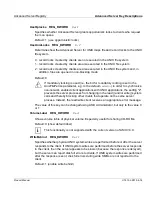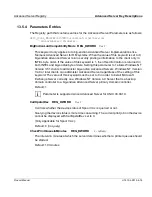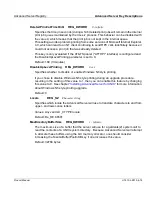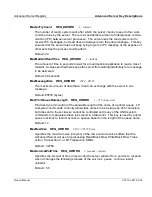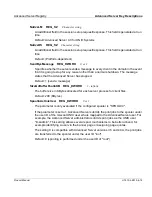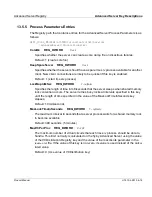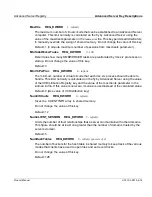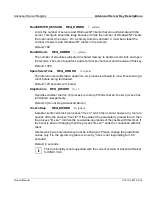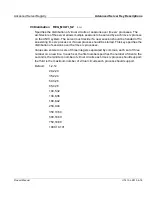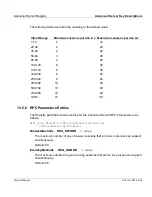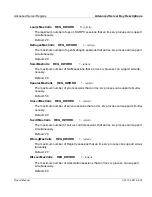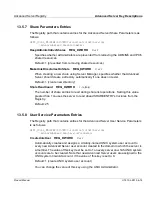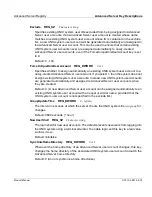
Advanced Server Registry
Advanced Server Key Descriptions
Product Manual
U7613-J-Z815-6-76
©
S
iem
e
n
s
N
ix
dor
f
In
fo
rm
at
io
n
s
s
y
s
te
m
e
A
G
1
9
9
5
P
fad
: D:
\O
7
613
e6
\u
761
3e
.k
13
UnixCloseCount REG_DWORD
1 - 20
The number of least-recently accessed open files that the server closes transparently
to avoid reaching the UNIX system’s per-process limit. The server uses a technique
called file descriptor multiplexing to allow clients to open far more files than the per-
process limits would normally allow.
Default: 5
UnixDirectoryCheck REG_DWORD
0, 1, or 2
Specifies whether Advanced Server will allow clients to write to UNIX system directories
that do not have write permissions. Microsoft client software treats the “Read-Only”
attribute as advisory and does not limit the behavior of directories. In contrast, the UNIX
system treats “Read-Only” permissions as mandatory and prohibits users from writing
in directories for which they do not have write permission.
A value of 0 allows writing only to directories with write permissions; a value of 1 allows
writing to directories belonging to or created by Advanced Server (as determined by
checking group memberships of directory); and a value of 2 ignores UNIX system
directory permissions.
Default: 1
You can change the value of this key using the AS/U Administrator.
The parameters UnixQuotas, IgnoreUnixPermissions and UnixDirectoryCheck
depend on each other in the following way:
–
If UnixQuotas is set to 1, the other two parameters are both assumed to be 0
independent of their real registry values.
–
If UnixQuotas is set to 0 and IgnoreUnixPermissions is set to 1, the parameter
UnixDirectoryCheck is assumed to be 2 independent of its real registry value.
UnixDirectoryPerms REG_DWORD
0 - 511
The UNIX system permissions for newly-created directories.
Default: 509 (0775 octal)
You can change the value of this key using the AS/U Administrator.
UnixFilePerms REG_DWORD
0 - 4095
The UNIX system permissions for newly-created files.
Default: 1460 (02664 octal)
You can change the value of this key using the AS/U Administrator.
!

















